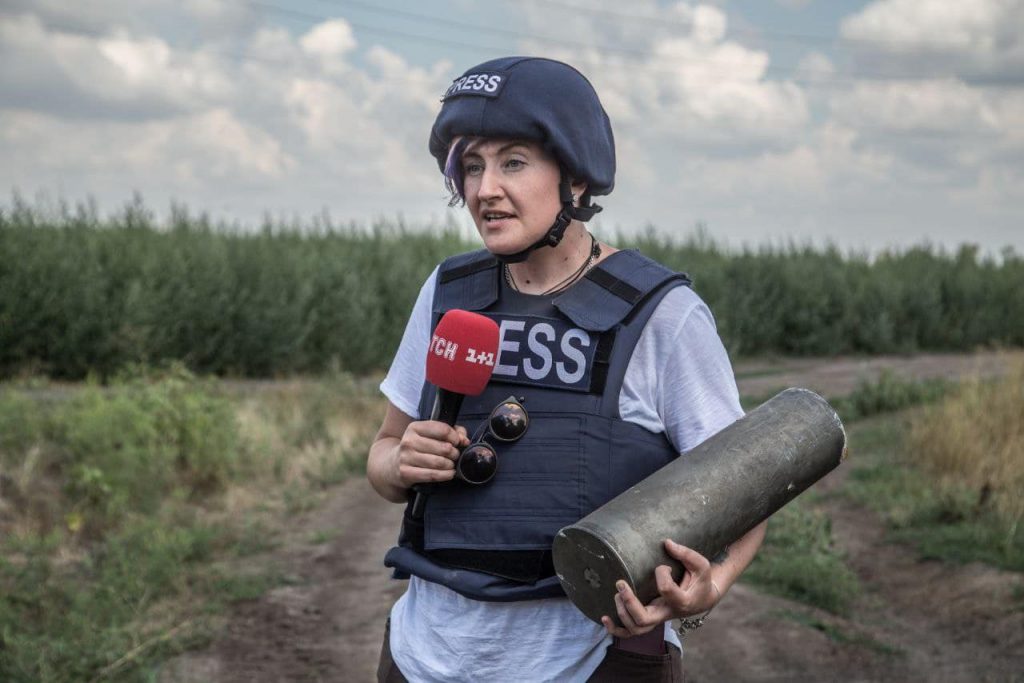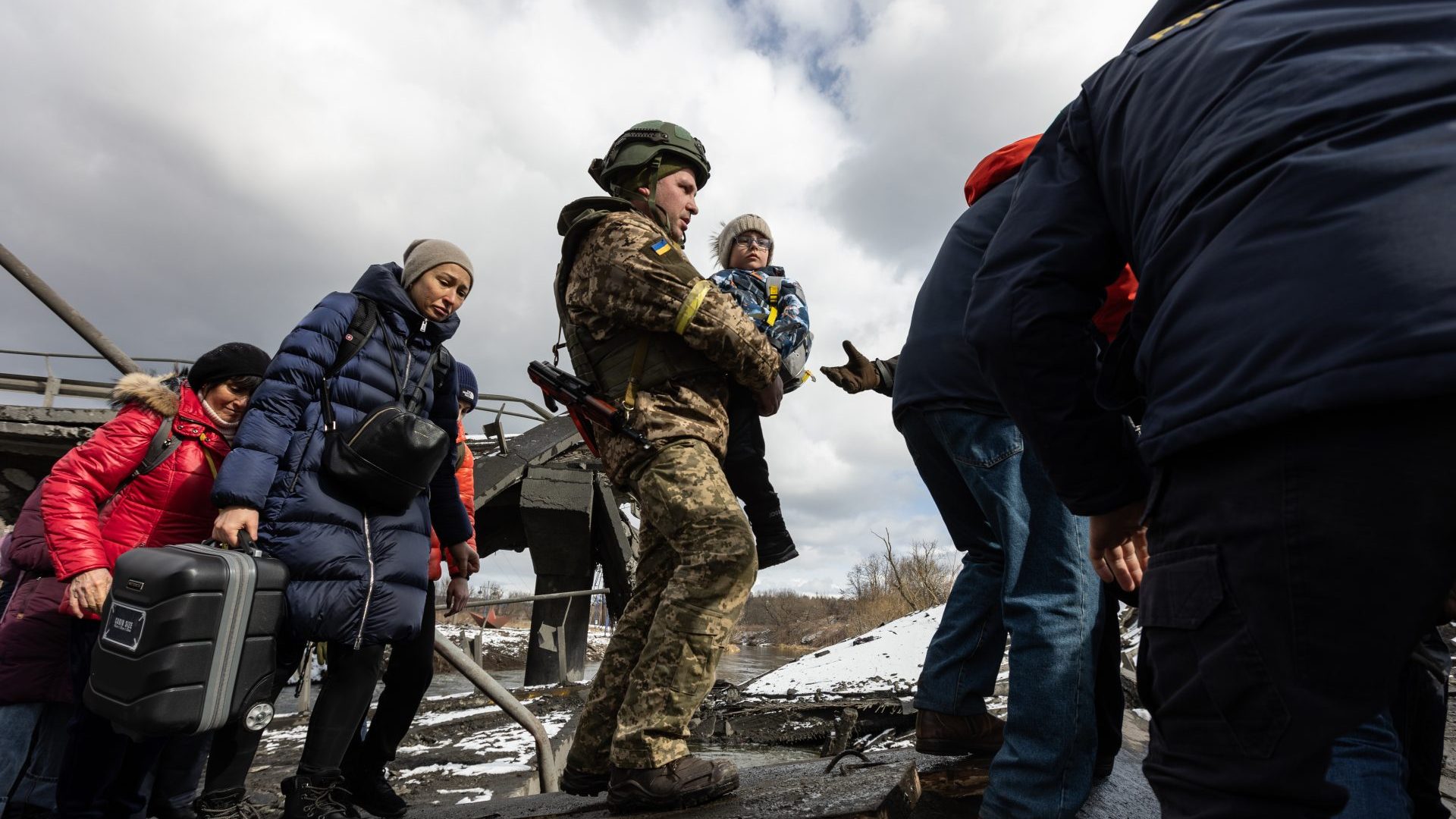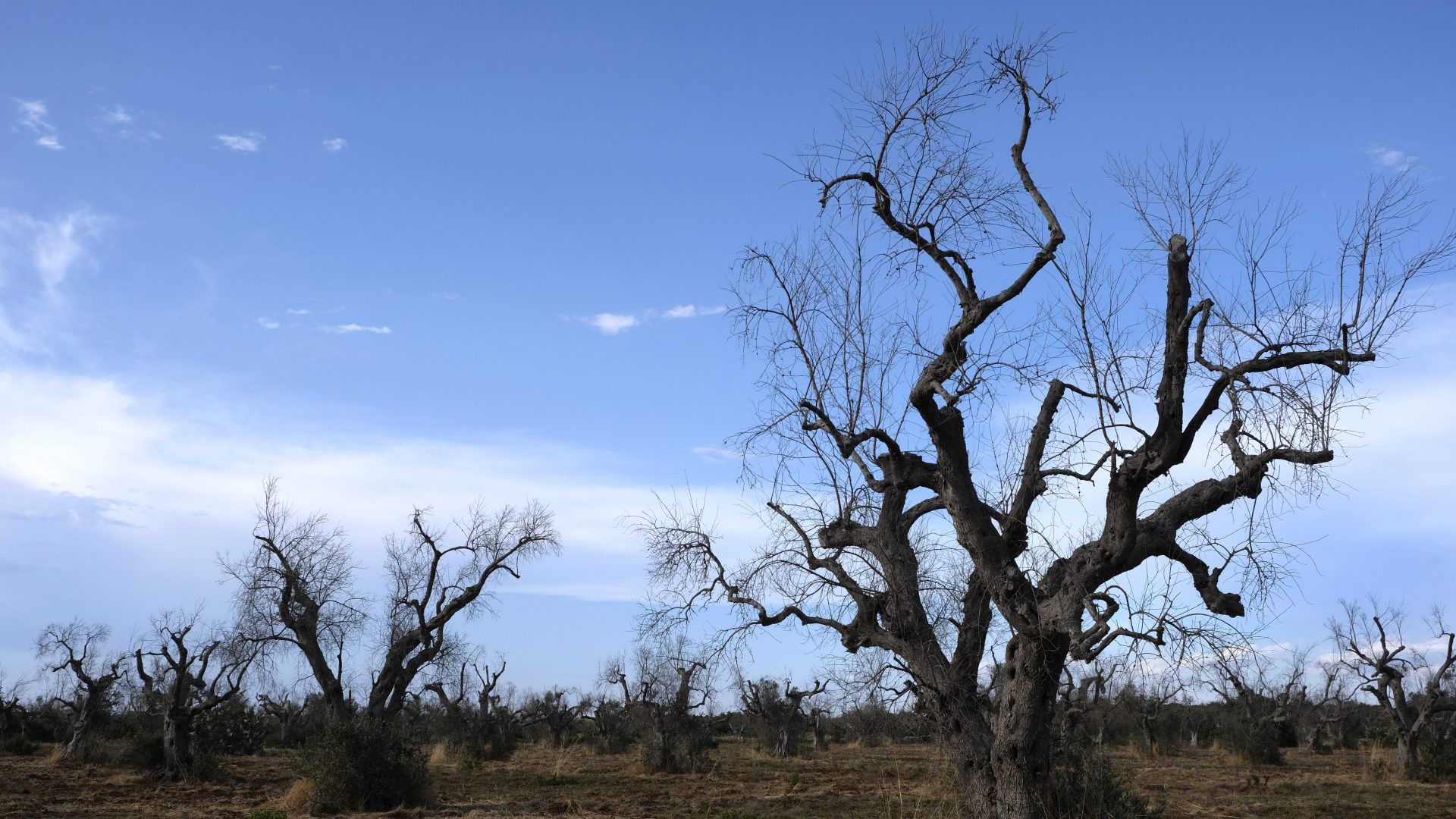Two young boys in Evgeny Afineevsky’s Freedom on Fire: Ukraine’s Fight for Freedom are discussing the end of the war. “I just want the sun to get so big it swallows Russia. So big that all is left is Ukraine,” one of them says, before pausing to add that the US can also remain in his new world order. “And Japan,” the child next to him says. He likes their sushi.
“I think it’s the innocence,” explains Afineevsky, the Israeli-American director, when I ask him about the film’s focus on youth. For him, seeing the invasion through the eyes of Ukraine’s future and understanding what shapes their voices is vital.
This is Afineevsky’s second film about Ukraine. It was one he never intended to make.
In 2015, Afineevsky directed Winter on Fire: Ukraine’s Fight for Freedom, which captured the events of the 2013 Maidan uprising in Kyiv. President Viktor Yanukovych’s decision not to sign a deal with the EU, opting instead for closer ties to Russia, sparked outrage and a wave of protests across the city.
Afineevsky’s film was nominated for Oscars and Emmy awards, and it was followed by movies such as Iryna Tsilyk’s The Earth Is Blue as an Orange and Sergei Loznitsa’s Donbas, both works by Ukrainian directors. But no one was listening.
“From 2014 to 2022, the world was silent,” Afineevsky tells me. When the world woke up on February 22 last year, Afineevsky’s response was to make Freedom on Fire.
Unlike Winter of Fire, however, its follow-up will not be on Netflix. Afineevsky is reluctant to get into the “politics of Hollywood” but makes it clear that alternative plans for distribution are underway. He hopes the film will premiere on Ukraine’s independence day, August 24.
For Afineevsky, an unforgivable mistake was made when Putin annexed Crimea in 2014 – the world hesitated. “Putin was given breathing room. This space allowed him to launch his full-scale invasion eight years later,” he says. “I created the film to give ordinary Ukrainian people back their voices. That is what it boils down to.”
For this new film, his priority was giving a platform to everyday people. We meet several recurring characters, including a Molotov cocktail connoisseur, a priest and a Ukrainian soldier.

Also among them is Natalia, a war correspondent. In one scene, she makes several attempts at filming a news broadcast, but she keeps breaking down in tears. It is not until a group of Ukrainian soldiers embrace her, and promise that Ukraine will win, that she is able to complete her filming.
“Natalia is fighting for freedom, for freedom of speech. She has been one of the journalists covering this story for the last nine years,” he says. “I also lost a lot of friends last year. I wanted to emphasise this.”
In another gut-wrenching scene, a traumatised elderly woman screams, guiding the camera to her burning house. “Look at what they’ve done,” she cries. “Those two idiots. One’s in Belarus and one in Russia, and the whole world can’t stop them!”
But it’s the clips featuring Ukraine’s children, understandably, that are the most poignant. A little girl toddles around Kyiv’s destruction in a pink boiler suit before being swept up by a fleeing man, who we presume is her father. Later, in an air-raid shelter, when relief workers arrive, a young boy is worried that his sleeping sibling might miss out on receiving a fresh orange.
Despite these deeply personal scenes, Afineevsky is also eager to convey the wider context. “It’s important to have a comprehensive story. Compared to the news updates, where you get three or four minutes of what is happening on the ground that day, I wanted to bring a historic lesson,” he says.
“Every century has a dictator,” Afineevsky said during a Q&A at a recent Freedom on Fire screening I attended. “The 19th century had Napoleon. The 20th century had Hitler and now we have Putin.”
“The end for Putin – for this criminal – is also very close. This is something he understands, and fears,” he said. The issue, however, is that the world tends to forget historical precedent. Or, as Afineevsky says, “the problem is that we are not learning from history.”
“For Ukrainians, victory is not just about kicking Russians out of territories. The real win is when the future Russian president – whoever they may be – will come to Kyiv, fall to their knees in front of the monument to all the people who died in this war and ask for forgiveness,” he says. “Then there are the reparations.
“Ukraine is a case study for every dictator,” he continues. “For example, it’s one for China as they eye up Taiwan. All these fights are similar, especially those with territorial claims. No dictator is above punishment, this is what I wanted my film to say.”
Afineevsky has, evidently, learnt his lesson from 2015, cautiously choosing not to engage with the question of a third film about Ukraine. “I do not want to go into this,” he laughs. “I’ve said once that I wouldn’t do it again and I did so… you never know. But I don’t want to jinx it. I’ve been there already.”




